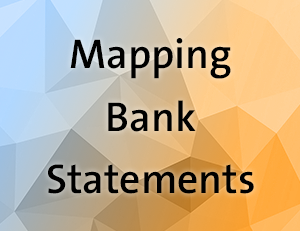5 Ways to Overcome Fear of Failure in Business
Have you ever felt frozen by fear? Forget about spiders, heights or even clowns – it’s fear of failure that entrepreneurs and small business owners will most often face.
If you’re a small business owner or self-employed, it’s important to be able to make quick, sound decisions that balance risk and reward. Knowing you can trust your own judgement is often critical to the success of your business.
While being apprehensive about failing is healthy – and can even help steer you away from unnecessary risk – problems arise when our fear of failure takes over. At an extreme, fear of failure can be crippling. It can stifle creativity, make people avoid decision-making, and consequently miss out on opportunities.
Signs to look out for that you might be experiencing fear of failure include anxiety, avoidance, feeling a loss of control, helplessness and powerlessness.
If you’re self-employed or a small business owner, the fear of failure can impact your ability to make many important business decisions.
Unfortunately, like any emotional or mental challenge, there isn’t one fix for that works for everyone. Instead, we’ve put together five fantastic strategies you can use to hopefully prevent or overcome fear of failure in small business.
Accept and welcome failure
You only need to spend five minutes on social media to risk falling into the trap of thinking that failure is something that only happens to certain people. Everyday we’re bombarded on social media by personal and professional successes stories.
It’s important to remember that often what you’re seeing online are highly curated snapshots of people’s lives.
The truth is: everyone fails – often spectacularly.
It can be helpful to talk to the people around you about times when they have experienced failure. Everyone has a story. Share those embarrassing or difficult memories to remind yourself that failure is both normal and healthy.
Rewiring how we learn
Now that we know that failure is a part of life, let’s look at what can be done to make the most out of our inevitable missteps.
Simply failing and repeating is unproductive, so it’s important – and helpful – to stop, take a minute, and reflect.
While it may sound like a daunting task, setting time aside to ponder where you went wrong can empowering you to turn failure into personal or professional growth.
Set up a system where you ask yourself a series of questions, such as:
- What went wrong?
- If I have the chance again, what could be done better next time?
- Is there anything I can learn from this experience?
- Is there an opportunity to educate my team/employees on this experience?
If you find this method helpful, you can even encourage your employees to follow the same techniques. Together you may start seeing failure as an opportunity for shared learning.
Adopt a Beginner Mindset
Contrary to the name, a ‘beginner’s mindset’ is a tool that can is used by everyone – from experts to novices.
The key here is to approach a task or a job as though you are a beginner, regardless of your experience. This can make it easier to let go of the expectations we place on ourselves that can lead to fear of failure.
In business, this approach not only helps free us from fear of failure, but is proven to help encourage innovation and increase our ability to learn new things. By being open-minded and listening to others without pre-judgment, we are more open to new ideas and can find creative solutions to problems.
This is an approach that has roots far beyond the western business world. In Zen Buddhism, Shoshin is the practice of having a ‘beginner’s mind’ and refers to having an attitude of openness and eagerness when studying a subject, even when studying at an advanced level.
Thankfully it doesn’t take years of meditation to start to shift your mindset. You can start to change how you approach new challenges today.
Manage your expectations
Too often fear of failure can stem from unrealistic or poorly defined expectations.
Sometimes, without even realising it, we view failure or success as an all or nothing result. So, it can be beneficial to manage our expectations and redefine what failure looks like.
For example, John is keen to take the plunge and start his own business but finds himself frozen by fear of failure. John takes the time to examine his expectations around failure. He had previously expected the business to become profitable within a few months. This self-imposed deadline was stopping him from even starting the business at all.
By starting smaller and managing his expectations, John is able to take the first steps towards being self-employed.
Being clear with yourself and your business about what your expectations are, can help to better manage risk without being motivated by fear.
You don’t have to go it alone
In some cases, fear of failure can be tied to other mental health conditions such as anxiety or depression. Exploring and treating mental health conditions such as these through the help of medical professions (such as your GP, a therapist or a psychology) can be effective.
Contacting your GP to discuss any mental health concerns can be a great first step.
If you or anyone you know needs help, they can call Lifeline on 13 11 14, Headspace on 1800 650 890 or Beyond Blue on 1300 224 636.












Leave a Reply